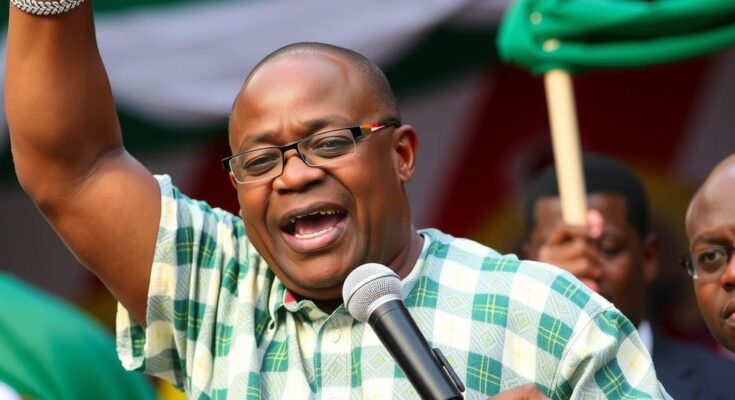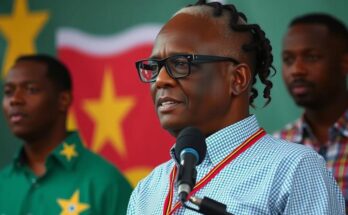Ghana’s opposition leader John Mahama has officially won the presidential election, defeating ruling party candidate Mahamudu Bawumia with 56 percent of the votes. This election reflects voter dissatisfaction with the previous government’s economic management, paving the way for Mahama’s promised reforms and economic recovery efforts following years of crisis. Bawumia has conceded, acknowledging the electorate’s desire for change as parliamentary election results are awaited.
In a significant political turnaround, John Mahama, the leader of Ghana’s opposition, has emerged victorious in the recent presidential election, securing 56 percent of the votes on Saturday. His triumph over ruling party candidate Vice President Mahamudu Bawumia, who garnered 41 percent, reflects widespread discontent with the government’s handling of economic issues and soaring living costs. This election marks an end to the New Patriotic Party’s (NPP) eight-year hold on power, led by former President Nana Akufo-Addo, whose administration faced severe economic challenges, including a debt crisis and an IMF bailout.
Following the announcement of the election results, Mahama, addressing a jubilant crowd, emphasized the urgency of his mandate, stressing that it underscores the people’s demand for effective governance and reforms. Bawumia, in his concession speech, acknowledged the electorate’s desire for change, confirming that Mahama’s party had also won the parliamentary vote. Although official parliamentary results are pending, the political landscape in Ghana will significantly shift as Mahama vows to restore fiscal stability and revitalize the economy.
The recent election held in Ghana is pivotal as it brings about a shift in political power following years of economic strife. Ghana has a longstanding tradition of democratic governance, alternating between two major parties since 1992: the National Democratic Congress (NDC) and the New Patriotic Party (NPP). The election is particularly significant due to the economic hardships faced by the populace, including inflation and currency devaluation, which have severely impacted living standards and spurred public dissent against the current administration. Mahama’s victory is a reflection of the electorate’s demand for change, seeking stability and economic revival after a tumultuous eight years under the NPP administration.
In summary, John Mahama’s victory in the presidential election signifies a decisive shift in Ghana’s political landscape, highlighting voters’ frustrations with the current government’s economic management. As he prepares to take office, Mahama’s commitment to reform and economic revival will be closely scrutinized, especially in light of the serious challenges faced by the country. The upcoming parliamentary results will further shape the direction of governance in Ghana as it continues to navigate economic recovery.
Original Source: www.france24.com



